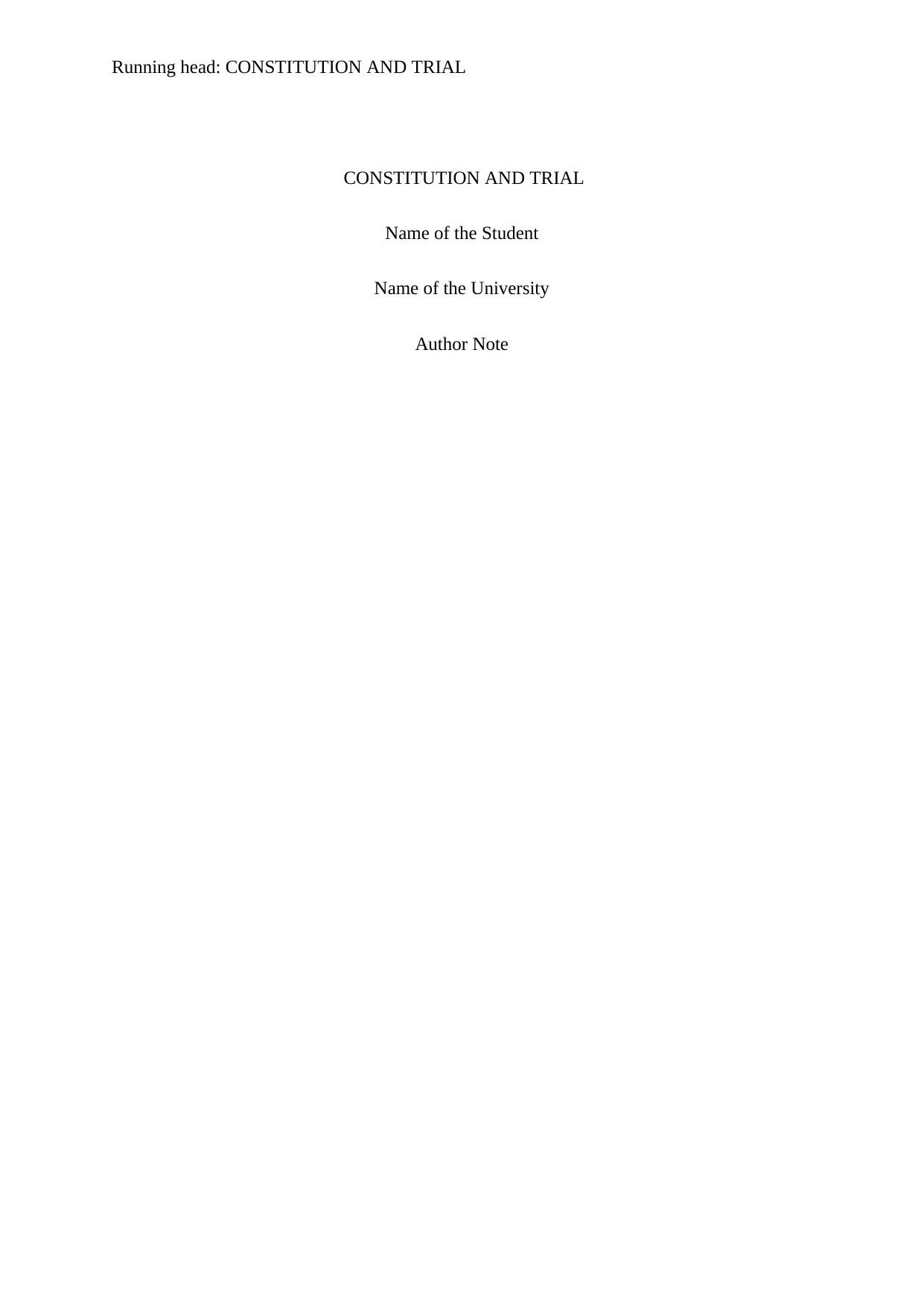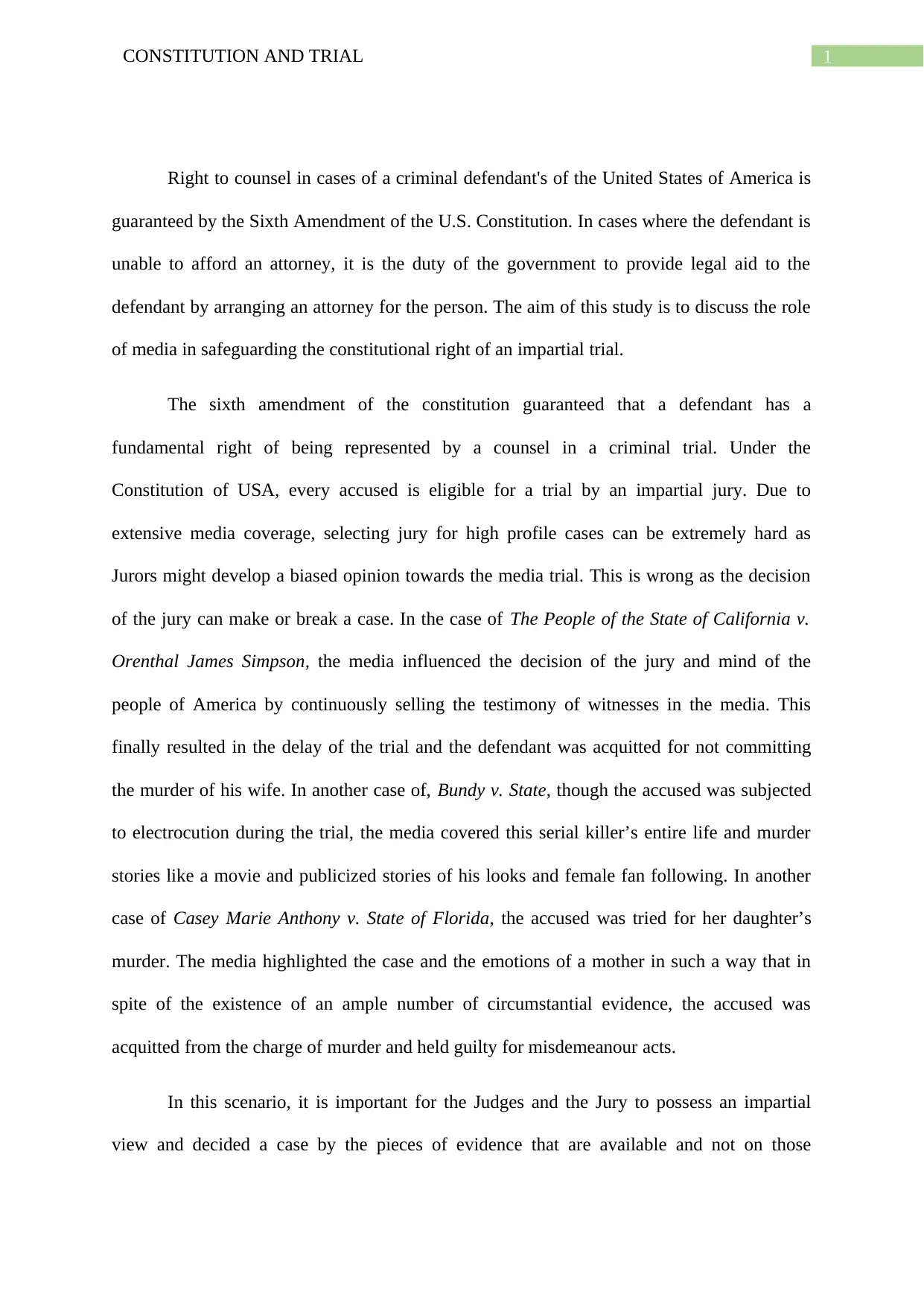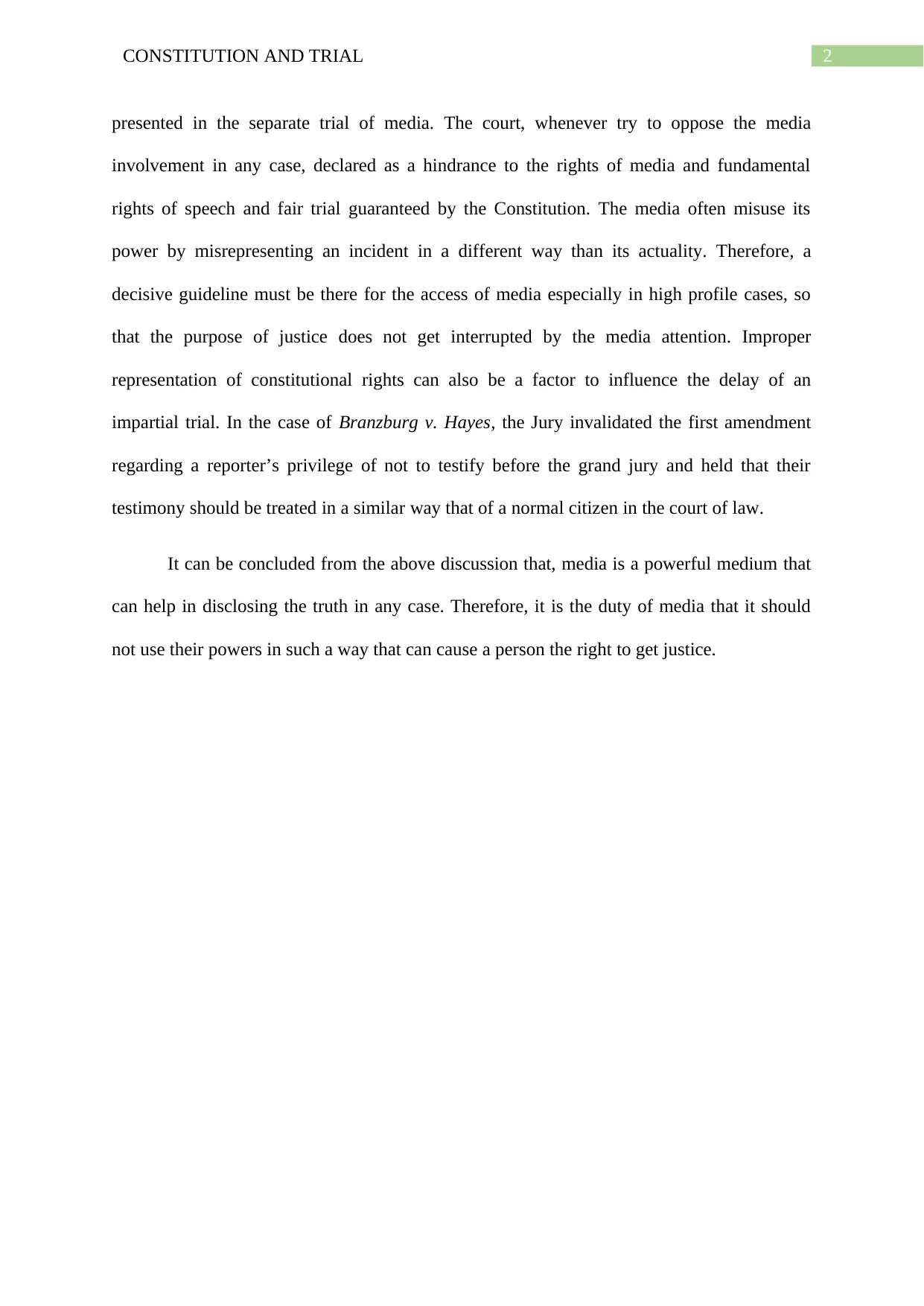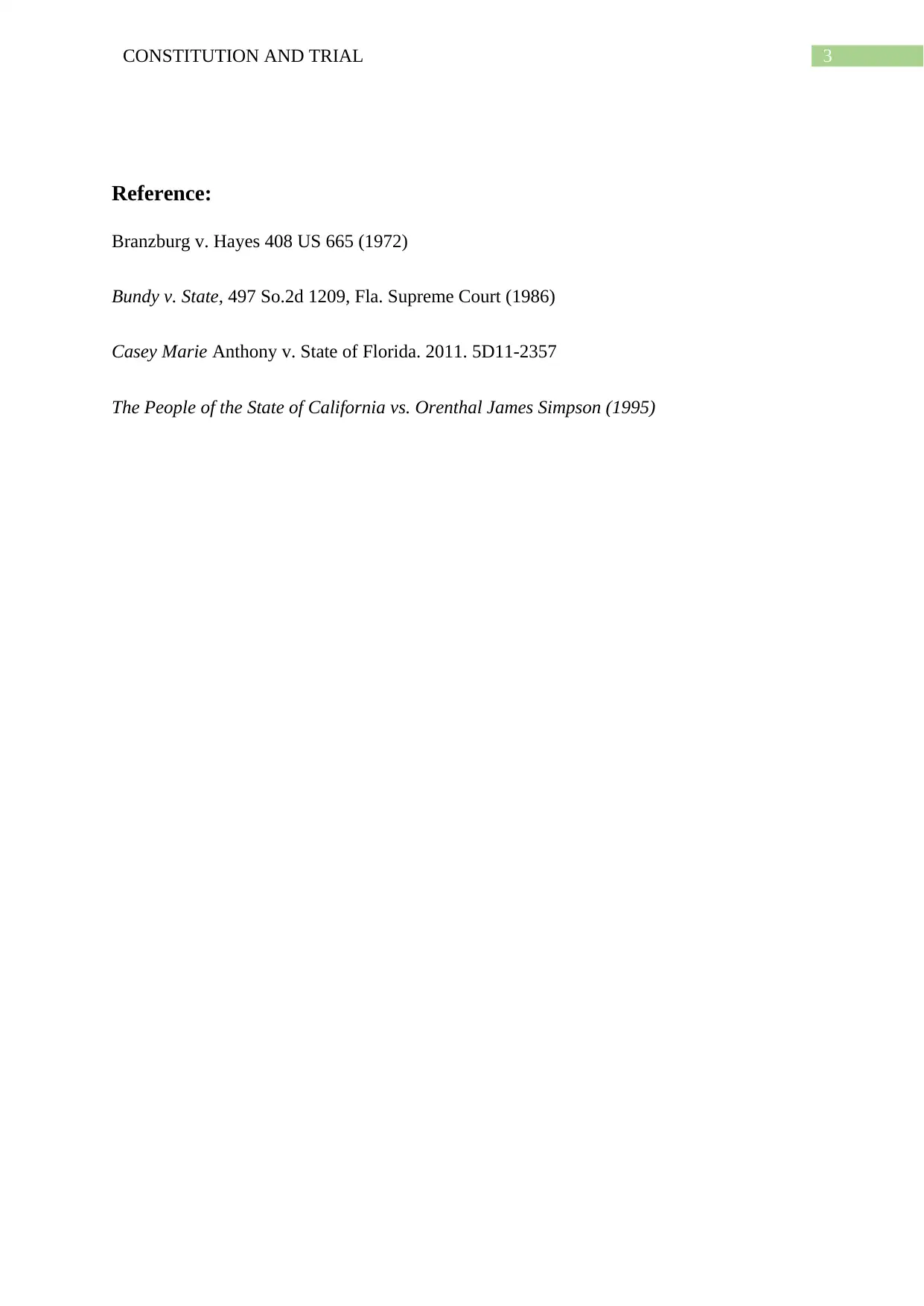The Role of Media in Constitutional Rights: A Case Study Examination
VerifiedAdded on 2022/08/22
|4
|683
|12
Case Study
AI Summary
This case study examines the impact of media on constitutional rights, particularly focusing on the Sixth Amendment's guarantee of a fair trial. It analyzes several high-profile cases, including The People of the State of California v. Orenthal James Simpson, Bundy v. State, and Casey Marie Anthony v. State of Florida, to illustrate how media coverage can influence jury decisions and potentially compromise the impartiality of trials. The study discusses the challenges of balancing media freedom with the need to protect defendants' rights to a fair trial, highlighting the potential for media misrepresentation and the importance of judicial guidelines to manage media access in high-profile cases. The case study also references Branzburg v. Hayes to discuss the limitations on reporters' privileges and concludes by emphasizing the need for responsible media practices to ensure justice is served without undue influence or bias.
1 out of 4











![[object Object]](/_next/static/media/star-bottom.7253800d.svg)